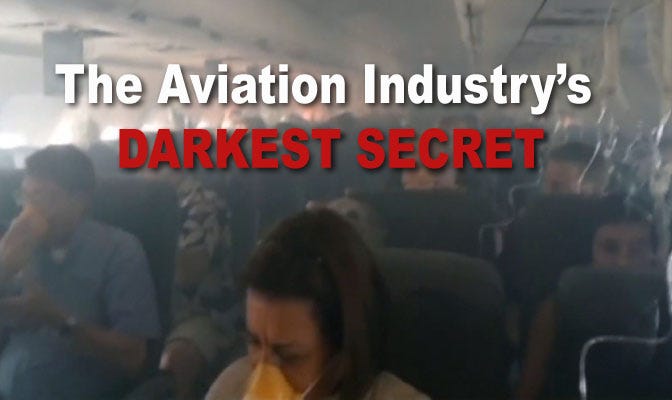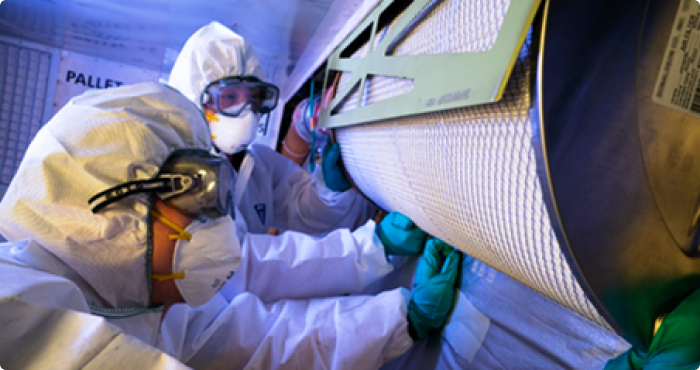moon
Satire for Sanity

Lone passenger survives as Air India plane crash in Ahmedabad kills 241
These were the updates on the deadly crash of Flight 171, bound for Gatwick airport in the United Kingdom.

Air India 787 crash is the first involving a Boeing Dreamliner, this doesn't look good for Boeing if this was a 787 malfunction?!!
Lone passenger survives as Air India plane crash in Ahmedabad kills 241
These were the updates on the deadly crash of Flight 171, bound for Gatwick airport in the United Kingdom.www.aljazeera.com
We'll see;
'
Last month, Boeing celebrated carrying its billionth passenger on the 787 Dreamliner - an impressive feat given it only launched 14 years ago. Until today's tragic Air India crash in Ahmedabad, the model was a mainstay of intercontinental travel and had an exemplary safety record.
This is a different plane from the Boeing 737 Max, which was in the headlines after fatal crashes in Indonesia and Ethiopia, which killed hundreds of people in 2018 and 2019 respectively.
A software fault was found to have caused those incidents and the model was grounded worldwide for 18 months.
So far, there is nothing to suggest any fault on Boeing's side today in India. A much fuller picture will come once the plane's black boxes - the electronic recording devices that store vital flight information - have been recovered. '


Whoever wrote that article is an idiot. Compressors have to be lubricated too whatever their power source is. Most of the cabin air is recirculated during flight and run through a HEPA filter system with each pass.I definitely think it's a shame, especially considering it's the only commercial aircraft I know that doesn't play the toxic air lottery:

“Asbestos of the Sky” - The Aviation Industry’s Darkest Coverup
Exposing the hidden epidemic of toxic cabin air and the silenced truths haunting modern aviation.sayerji.substack.com
Here’s an excerpt from the article:
**Flying the Toxic Skies: A Daily Global Risk
The only commercial aircraft that does not use bleed air is the Boeing 787 Dreamliner, which employs electrically powered compressors to bring in outside, non-engine-derived air. Unfortunately, Boeing 787s make up less than 5% of global commercial flights.
With approximately 100,000 flights occurring daily worldwide, and estimates suggesting that at least 1 in every 100 flights experiences a significant "fume event", this means millions of passengers and crew are being exposed dailyto toxic air—often without their knowledge.
The Bleed Air Problem: Expert Insight from the Aerotoxic Association
Organizations like the Aerotoxic Association have been tirelessly working to expose the dangers of cabin air contamination. They explain:
"Bleed air comes from the compressor section of the jet engine, which has to be lubricated. Jet engines mostly have 'wet seals' to keep the oil and air apart, which cannot be 100% effective… These seals wear out over time or may fail suddenly, allowing significant amounts of oil to enter the hot compressed bleed air, resulting in fumes or smoke entering the cabin—a situation known as a ‘fume event.’”
Importantly, they add:
“There are no filters in the bleed air supply to stop this from happening.”
Jet engine oil is no ordinary lubricant. It's made from synthetic chemicals, specifically designed to withstand extreme temperatures. These oils:
Are not petroleum-based
Contain organophosphates and aromatic hydrocarbons
Can become chemically altered (pyrolyzed) at high temperatures, forming even more toxic byproducts**


Whoever wrote that article is an idiot.
Compressors have to be lubricated too whatever their power source is.
**“Because of considerable variation among individuals in sensitivity to TOCP, it is not possible to establish a safe level of exposure… TOCP are therefore considered major hazards to human health.”

Not exactly a good way to start a response to someone who clearly thought the author who wrote the article was good -.-
Are you saying Sayer, the author you so like to call various names, has suggested otherwise? For the audience, I haven't seen Sayer deny Gardner's claim. He -also- says the following:
**
In the 1950s, engineers designed aircraft that drew fresh, filtered air from outside the plane. However, this safer method was abandoned in favor of cost-cutting measures. The decision-makers deemed the engineering changes too expensive to implement. As a result, the aviation industry adopted and standardized a design that would expose every crew member and passenger to potentially contaminated air—by design, not accident.1
**
Continuing from the article:
**
What You're Breathing: A Toxic Mix of Airborne Chemicals
Today, the air you breathe on board consists of a 50/50 blend of recirculated cabin air and bleed air. While the recirculated portion may be filtered, the bleed air is not—and it can contain a wide spectrum of synthetic and neurotoxic chemicals, including:
The World Health Organization sounded the alarm as early as 1990, stating:
- Tricresyl phosphate (TCP or TOCP) — an organophosphate linked to severe neurological damage.
**
From there, members of the audience can continue the article from the post Gardner was responding to, or perhaps better yet, just take a look at the entire article, which is here:

“Asbestos of the Sky” - The Aviation Industry’s Darkest Coverup
Exposing the hidden epidemic of toxic cabin air and the silenced truths haunting modern aviation.sayerji.substack.com


Sayer Ji is an idiot.Not exactly a good way to start a response to someone who clearly thought the author who wrote the article was good -.-Whoever wrote that article is an idiot.I definitely think it's a shame, especially considering it's the only commercial aircraft I know that doesn't play the toxic air lottery:

“Asbestos of the Sky” - The Aviation Industry’s Darkest Coverup
Exposing the hidden epidemic of toxic cabin air and the silenced truths haunting modern aviation.sayerji.substack.com
Here’s an excerpt from the article:
**Flying the Toxic Skies: A Daily Global Risk
The only commercial aircraft that does not use bleed air is the Boeing 787 Dreamliner, which employs electrically powered compressors to bring in outside, non-engine-derived air. Unfortunately, Boeing 787s make up less than 5% of global commercial flights.
With approximately 100,000 flights occurring daily worldwide, and estimates suggesting that at least 1 in every 100 flights experiences a significant "fume event", this means millions of passengers and crew are being exposed dailyto toxic air—often without their knowledge.
The Bleed Air Problem: Expert Insight from the Aerotoxic Association
Organizations like the Aerotoxic Association have been tirelessly working to expose the dangers of cabin air contamination. They explain:
"Bleed air comes from the compressor section of the jet engine, which has to be lubricated. Jet engines mostly have 'wet seals' to keep the oil and air apart, which cannot be 100% effective… These seals wear out over time or may fail suddenly, allowing significant amounts of oil to enter the hot compressed bleed air, resulting in fumes or smoke entering the cabin—a situation known as a ‘fume event.’”
Importantly, they add:
“There are no filters in the bleed air supply to stop this from happening.”
Jet engine oil is no ordinary lubricant. It's made from synthetic chemicals, specifically designed to withstand extreme temperatures. These oils:
Are not petroleum-based
Contain organophosphates and aromatic hydrocarbons
Can become chemically altered (pyrolyzed) at high temperatures, forming even more toxic byproducts**
The Republican idea of self regulation has failed again. Another good day to own Airbus.
The problem here is they were supposed to self regulate, and instead they mostly maximized dividends. It was not long term thinking.Boeing certainly has its flaws. I just hope that their innovation in the 787 in regards to air quality doesn't go unnoticed.
I can certainly agree with you there. From what I understand, corporations these days tend to gravitate towards short term gain at the expense of long term stability. I saw a documentary a while back on corporations titled "The Corporation" that I think is quite good. It was done over 20 years ago, but I think its conclusions on corporations still apply today. Here's the trailer:The problem here is they were supposed to self regulate, and instead they mostly maximized dividends. It was not long term thinking.
Okay, you respect him, I don't get over it.There you go again, insulting a guy I respect- like I said in my previous post, not exactly a good way to start a response with someone. I've noticed that you've said some more things after this, but I'm wondering if it's worth my time. First impressions matter- you might want to work on your intros.
Okay, you respect him, I don't get over it.There you go again, insulting a guy I respect- like I said in my previous post, not exactly a good way to start a response with someone. I've noticed that you've said some more things after this, but I'm wondering if it's worth my time. First impressions matter- you might want to work on your intros.
I punctuated it wrong, sorry. It should read: Okay, you respect him. I don't. Get over it.What do you mean by "I don't get over it"?
Air India 787 crash is the first involving a Boeing Dreamliner, this doesn't look good for Boeing if this was a 787 malfunction?!!
I punctuated it wrong, sorry. It should read: Okay, you respect him. I don't. Get over it.What do you mean by "I don't get over it"?

Lone passenger survives as Air India plane crash in Ahmedabad kills 241
These were the updates on the deadly crash of Flight 171, bound for Gatwick airport in the United Kingdom.www.aljazeera.com


